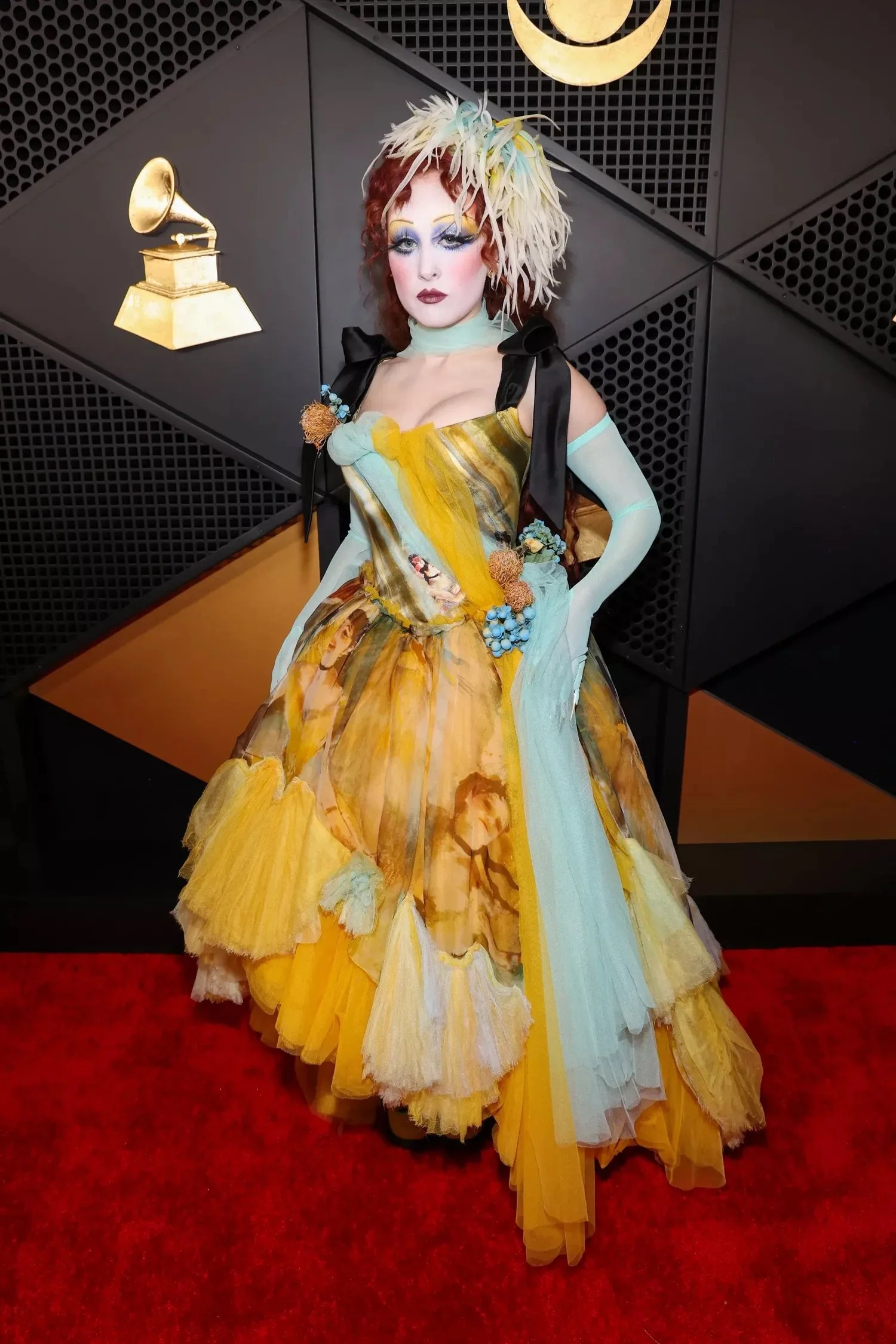Grammy Awards 2025
The 2025 Grammy Awards were more than just a celebration of talent—they became a platform for artists to raise their voices on the most pressing social and political issues of our time.
Chappel Roan in Jean Paul Gaultier spring 2003 couture. Courtesy of Getty Images, available via Vogue Scandinavia © All rights belong to their respective owners. No copyright infringement intended
On February 2, the world tuned in for the biggest night in music—the Grammy Awards. This year’s edition was one of the most widely praised in recent memory, blending spectacle, emotion, and a heavy dose of political and social commentary. Every year, the award season sparks predictions, debates over snubs, and endless discussions on red carpet fashion, electrifying performances, and heartfelt speeches. Sometimes, it almost feels like the music itself takes a backseat, becoming a tool for entertainment and a vehicle for larger societal conversations. The 2025 Grammys were no exception, with numerous artists turning their moment of triumph into a powerful statement on justice, representation, and change.
The ceremony took place in a politically charged climate, following the controversial post-Trump era, where tensions surrounding minority rights, immigration, and LGBTQ+ rights have resurfaced with intensity. The music industry—long a champion of human rights and diversity—did not stay silent. Artists like Chappell Roan, Lady Gaga, Shakira, and Doechii seized their moment under the spotlight to speak out, transforming their speeches into manifestos of social responsibility.
Crowned Best New Artist, Chappell Roan took the stage clutching a notebook, her voice trembling with emotion as she delivered a heartfelt speech denouncing the lack of fair wages and healthcare support for artists signed to record labels. She called for urgent reforms to ensure better conditions for musicians, particularly emerging artists who struggle to make a living at the start of their careers. She directly challenged former music executive Jeff Rabhan, sparking an industry-wide debate. While some insiders questioned her confrontational approach, many fans and fellow artists defended her, praising her courage and authenticity.
Lady Gaga, a longtime advocate for LGBTQ+ rights, took home the award for Best Pop Collaboration alongside Bruno Mars. In her speech, she voiced unwavering support for trans rights, amplifying a message of inclusivity. The duo also delivered one of the night’s most poignant performances—a heart-wrenching rendition of California Dreamin’, dedicated to the victims of the devastating wildfires in Los Angeles. Charli XCX also stood in solidarity with the trans community bringing trans activists on stage during her electrifying performance of Guess, ensuring visibility and representation in a way that transcended mere words.
Doechii made history by becoming only the third woman to win Best Rap Album with Swamp Princess. In an emotional acceptance speech, she dedicated her victory to Black women and young girls, urging them to persevere despite societal obstacles. Her win marked a major step forward for female representation in a genre historically dominated by male voices. Shakira, meanwhile, took home Best Latin Pop Album for Las Mujeres Ya No Lloran and used her moment on stage to highlight the struggles faced by immigrants, emphasizing the cultural enrichment they bring to society. Her words resonated strongly, reinforcing the need for greater inclusivity and appreciation of diverse backgrounds.
Alicia Keys also took a stand for Diversity, Equity, and Inclusion, underlining the importance of ensuring equal opportunities and amplifying diverse voices in the music industry and beyond. Meanwhile, host Trevor Noah opened the ceremony with a sharp monologue that tackled various social and political issues. He particularly criticized immigration restrictions and U.S. immigration policies, even joking about his own status in the country. However, some of his remarks, especially those regarding undocumented immigrants, sparked controversy, drawing mixed reactions from the audience. Among the artists present, Doechii was notably displeased with some of his comments.
This edition of the Grammys also stood out for its strong emphasis on inclusivity. Women in music took center stage, not only for their talent but also as prominent figures within the LGBTQ+ community. This shift marked a cultural evolution, moving away from a traditionally male-dominated landscape and toward a broader acceptance of diverse voices. It signaled a clear departure from the industry's past tendencies to favor specific aesthetic and content standards.
While many celebrated the wins of socially conscious and innovative artists, the absence of certain major names—such as Billie Eilish and Taylor Swift—did not go unnoticed. Fans and critics alike questioned whether the Recording Academy’s selections were influenced more by activism than by commercial success, igniting a fresh round of debates on the awards’ criteria.
The 2025 Grammy Awards proved that music is more than entertainment—it’s a force for change. In an era of heightened social and political tension, the ceremony became a platform for voices that demand to be heard, challenging the status quo and redefining what truly deserves to be celebrated in today’s cultural landscape.

